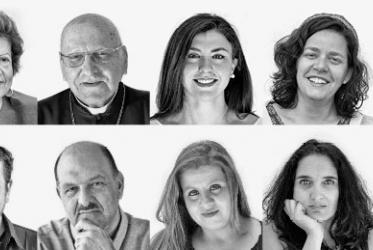Displaying 141 - 160 of 271
WCC seeks #JusticeAndPeace in the Holy Land
20 June 2017
Women in development create space for hope in Egypt
15 June 2017
WCC gravely concerned over Israel’s travel ban
09 March 2017
Praying for one another, even when we disagree
02 March 2017
WCC general secretary speaks on religion and discrimination
14 February 2017
Churches in Norway and Pakistan break new ecumenical ground
26 January 2017
Plans for 2017 decided by WCC Executive Committee
01 December 2016
In Syria and Iraq, minorities must come out of the darkness
28 November 2016
Grand Imam calls for collaboration against violence and poverty
06 October 2016
Tveit offers input at religion and development meeting
03 October 2016
WCC holds discussion on religious freedom literacy and diplomacy
23 September 2016











